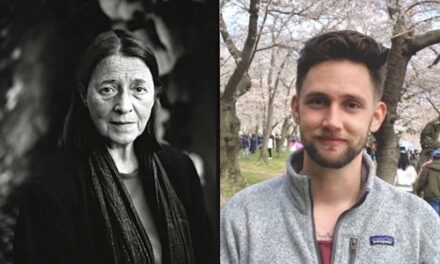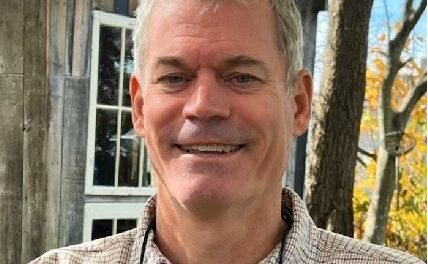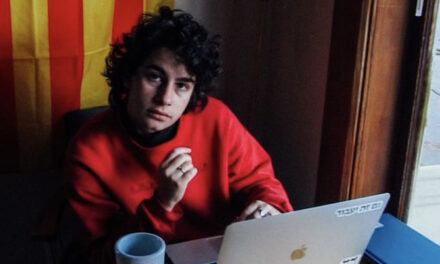Associate Editor Lisa Low: Travis Chi Wing Lau’s “In the Land of Pain,” a nod to nineteenth-century French author Alphonse Daudet’s text of the same name, begins with a self-directive to keep walking while experiencing “shooting pains / that nail me / to a spot.” As we move down the page, we find that the form of the poem—white space, justified margins, short lines that drop down in the middle to the next—is characterizing both the act of walking and pain as an immersive space. While the poem’s shape is narrow, its poetics is expansive, reconstructing our thinking on chronic pain.
To hear Travis read his poem, click below:
In the Land of Pain
After Alphonse Daudet
Keep walking,
I will myself.
Fear of an attack,
shooting pains
that nail me
to a spot—no,
cannot stop,
cannot break.
Strange, the fear
that pain inspires:
it is bearable,
and yet I cannot
bear it—
this breastplate
preventing
even gasps of life.
Yet relief
is a fistful,
the rattle
of capsules
all the way
down.
At least
until the return,
when I vomit up
little more than
a general theory
that talks too much
but accounts
for nothing.
Resistance is
even less
than futility, so,
Pain, you
must be
everything for me.
Let me
find in you
all those
foreign lands
you will not
permit me to visit.
Be then
my philosophy,
my science,
because the only
real way
to know you
is to
submerge.
Travis Chi Wing Lau (he/him/his) is assistant professor of English at Kenyon College. His research and teaching focus on eighteenth- and nineteenth-century British literature and culture, health humanities, and disability studies. Alongside his scholarship, Lau frequently writes for venues of public scholarship like Synapsis: A Journal of Health Humanities, Public Books, Lapham’s Quarterly, and the Los Angeles Review of Books. His poetry has appeared in Wordgathering, Glass, South Carolina Review, Foglifter, and Hypertext, as well as in two chapbooks, The Bone Setter (Damaged Goods Press, 2019) and Paring (Finishing Line Press, 2020).
For more miCRo pieces, CLICK HERE












